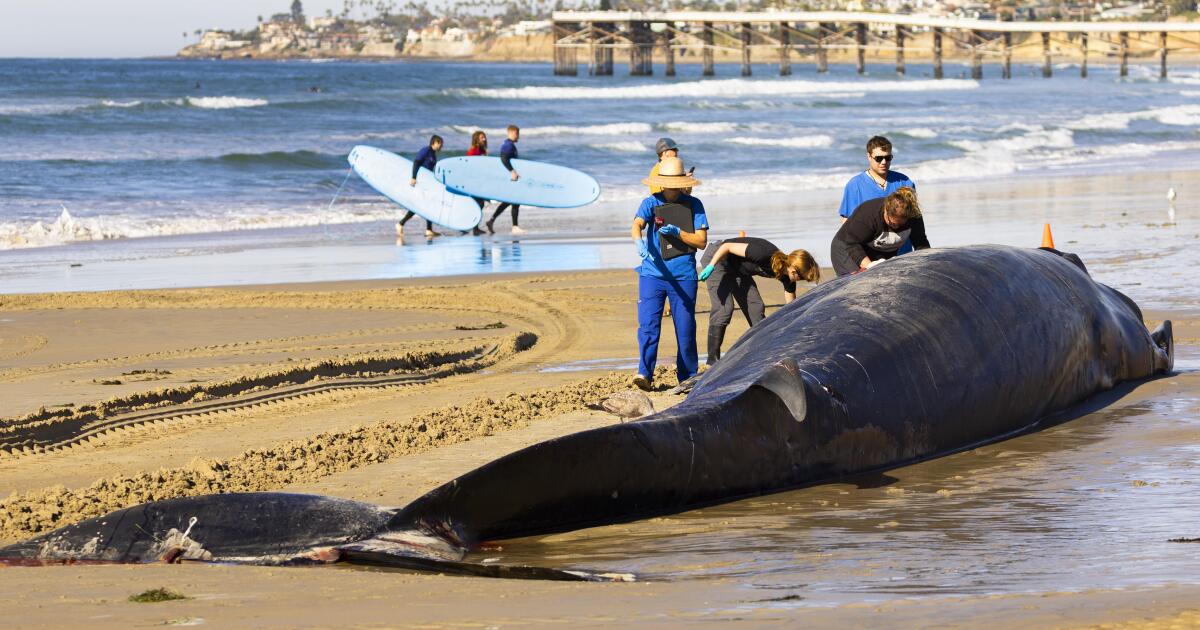
A 52-foot-long fin whale — a juvenile female — was found stranded on the sand in Mission Beach early Sunday but officials don’t know why it died.
People began calling the stranding network hot line operated by the National Oceanic and Atmospheric Administration after the whale was discovered dead on the beach, south of the Pacific Beach pier near Santa Rita Place. Lifeguards were notified around 7 a.m.
Fin whales are the second largest whales in the world — behind blue whales — and as adults can reach 70 to 80 feet long and weigh about 50 tons, or 100,000 pounds, as adults. They are endangered and thought to number around 8,000 off the West Coast, according to NOAA.
“It’s probably in the first couple years of its life,” said Michael Milstein, a spokesperson for NOAA Fisheries West Coast region. “It didn’t appear to have been dead very long because there wasn’t much evidence of scavenging or decomposition. But there was also no obvious sign of the cause of death.”
In cases where whales have been killed by ship strikes, there often is evidence of propeller marks and observers didn’t notice anything like that, Milstein said.

Bystanders look at a female fin whale that died and washed onto Mission Beach on Sunday.
(K.C. Alfred/The San Diego Union-Tribune)
“It is not clear why it would have died,” he said.
He said officials took tissue samples, which will be analyzed to try to determine why the whale died.
NOAA also wanted to make sure people were staying a safe distance from the carcass before it was towed out to sea. He said the plan was to wait until high tide to tow the whale out to deeper water and sink the body.
By 4 p.m., that operation was beginning to get under way, said lifeguard Lt. Jacob Magness.
Milstein said it is not common to see fin whales stranding along the West Coast. The species tends to stay in deeper water, compared to gray whales, which travel from 10,000 to 14,000 miles round-trip up and down the coast in annual migrations.
There has been an increased number of gray whales stranding from Mexico to Alaska since 2019, which prompted NOAA to declare an Unusual Mortality Event. Tests done on the whale bodies that were found showed evidence of emaciation on several of them. However, NOAA said those findings are not consistent across all of the whales examined and said more research will be done.

Researchers from NOAA Southwest Fisheries Science Center inspected the whale and took samples before city workers attempted to remove it. (K.C. Alfred / The San Diego Union-Tribune)
(K.C. Alfred/The San Diego Union-Tribune)






